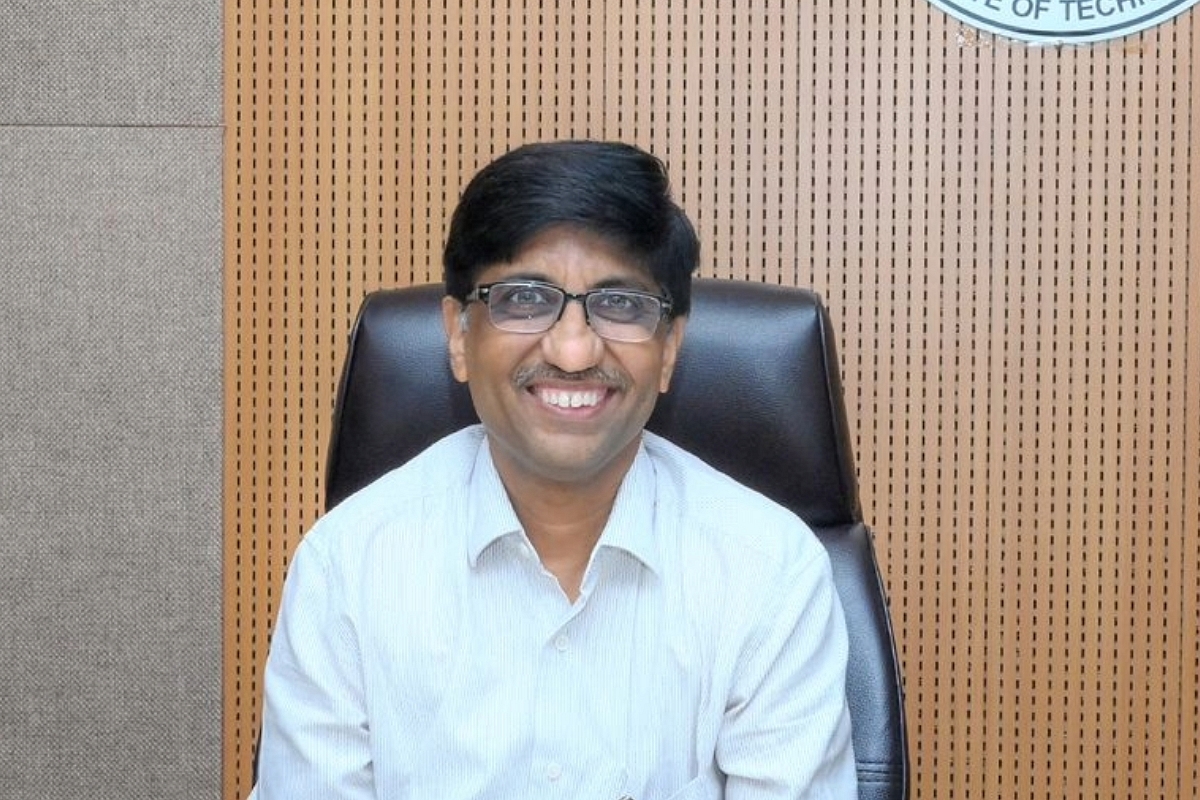Science
IIT Kanpur Director Chosen As Science And Technology Secretary: Know About Professor Abhay Karandikar
- Professor Abhay Karandikar led a national effort to set up the Telecom Standards Development Society of India (TSDSI), the country's standards body for telecommunications.
- He also developed the concept of 'frugal 5G network' to enable affordable rural broadband connectivity.

Prof Abhay Karandikar, Director of IIT Kanpur
Professor Abhay Karandikar, Director of the Indian Institute of Technology (IIT) at Kanpur, has been appointed as Secretary, Department of Science and Technology (DST).
The Appointments Committee of the Cabinet approved the selection on Saturday (16 September).
Prof Karandikar will serve as DST Secretary from when he takes charge of the post until he turns 60.
He will take over from Dr Rajesh S Gokhale, who assumed additional charge in July this year, over and above his role as Secretary, Department of Biotechnology, after Dr S Chandrasekhar quit as DST Secretary on "personal grounds" six months before the end of his tenure.
Prof Karandikar specialises in wireless communications, with research interests including quality of service and resource allocation in wired/wireless networks, TV white space and its potential for affordable broadband access in India, and frugal 5G and rural broadband.
The DST said on X that "wireless communication expert" Prof Karandikar "developed the concept of “Frugal 5G Network” to enable affordable rural broadband connectivity & contributed to telecom policy & regulations that were included in national-level telecom policies."
Additionally, he led a national effort to set up the Telecom Standards Development Society of India (TSDSI), the country's standards body for telecommunications. He served as its founding member and chairman.
The TSDSI is now part of 3GPP, or the 3rd Generation Partnership Project, and is a member of the Global Standards Collaboration.
The 3GPP unites seven telecommunications standard development organisations, enabling them to produce the reports and specifications that define 3GPP technologies.
"TSDSI is expected to influence next general telecom (especially wireless) standards through Indian requirements," according to Prof Karandikar.
The IIT Kanpur Director was also a member (part time) of the Telecom Regulatory Authority of India (TRAI) from January 2017 to January 2020.
Prof Karandikar has been with IIT Bombay for over two and a half decades, with the last several years spent at the helm of IIT Kanpur, as well.
After joining IIT Bombay in 1997, he led the Computer Centre from August 2008 to July 2011 and the Department of Electrical Engineering from January 2012 to January 2015.
He then served as the first professor-in-charge of the IIT Bombay Research Park (2014-17) and subsequently as Dean (Faculty Affairs) from February 2017 to April 2018.
Thereafter, on leave from IIT Bombay, where he is a professor in the Department of Electrical Engineering, he moved to IIT Kanpur and started serving as Director from 18 April 2018.
Outside of academia, Prof Karandikar has founded and mentored startups in telecom and networking.
He serves on the board of several companies, including on the Board of Governors of IEEE Standards Association.
He is a member of the Technology Innovations Group on 6G and chairs the 6G Spectrum Task Force set up by the Department of Telecom.
Earlier, he had also chaired the 5G Spectrum Policy Task Force.
Besides his contributions to IEEE and 3GPP standards, he has authored chapters in books and papers in international journals and conferences. He has numerous patents filed and issued, as well.
Further, he has served as the Coordinator of National Center of Excellence in Technology for Internal Security (NCETIS).
The NCETIS focuses on the technology requirements of security agencies, the state and central police forces in particular. It will be a resource centre for India's police.
Among the awards Prof Karandikar has received are the IEEE SA's Standards Medallion in December 2016 and the Mozilla Open Innovation challenge prize won by his team in March 2017 for work on rural broadband and digital empowerment in rural India.
Support Swarajya's 50 Ground Reports Project & Sponsor A Story
Every general election Swarajya does a 50 ground reports project.
Aimed only at serious readers and those who appreciate the nuances of political undercurrents, the project provides a sense of India's electoral landscape. As you know, these reports are produced after considerable investment of travel, time and effort on the ground.
This time too we've kicked off the project in style and have covered over 30 constituencies already. If you're someone who appreciates such work and have enjoyed our coverage please consider sponsoring a ground report for just Rs 2999 to Rs 19,999 - it goes a long way in helping us produce more quality reportage.
You can also back this project by becoming a subscriber for as little as Rs 999 - so do click on this links and choose a plan that suits you and back us.
Click below to contribute.
Latest